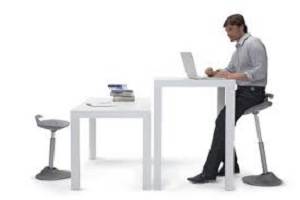September 15, 2014
How we travel to work has enormous impact on wellbeing, claims new research
New research has further highlighted the important role that the mode of transport we choose to get work has on our physical and psychological wellbeing. Walking or cycling to work is better for people’s mental health than driving to work, according to the research by health economists at the University of East Anglia and the Centre for Diet and Activity Research (CEDAR). The report ‘Does active commuting improve psychological wellbeing?’ was published today in the journal Preventive Medicine and draws on 18 years of data from 18,000 people. It follows on the heels of two other reports published last month in the British Medical Journal and Science Direct which make related claims about the careful choices we should make about how we get to work.




























May 13, 2014
Workplace design, Facebook likes and the need of companies to be your friend
by Mark Eltringham • Comment, Environment, Facilities management, Workplace design
More →